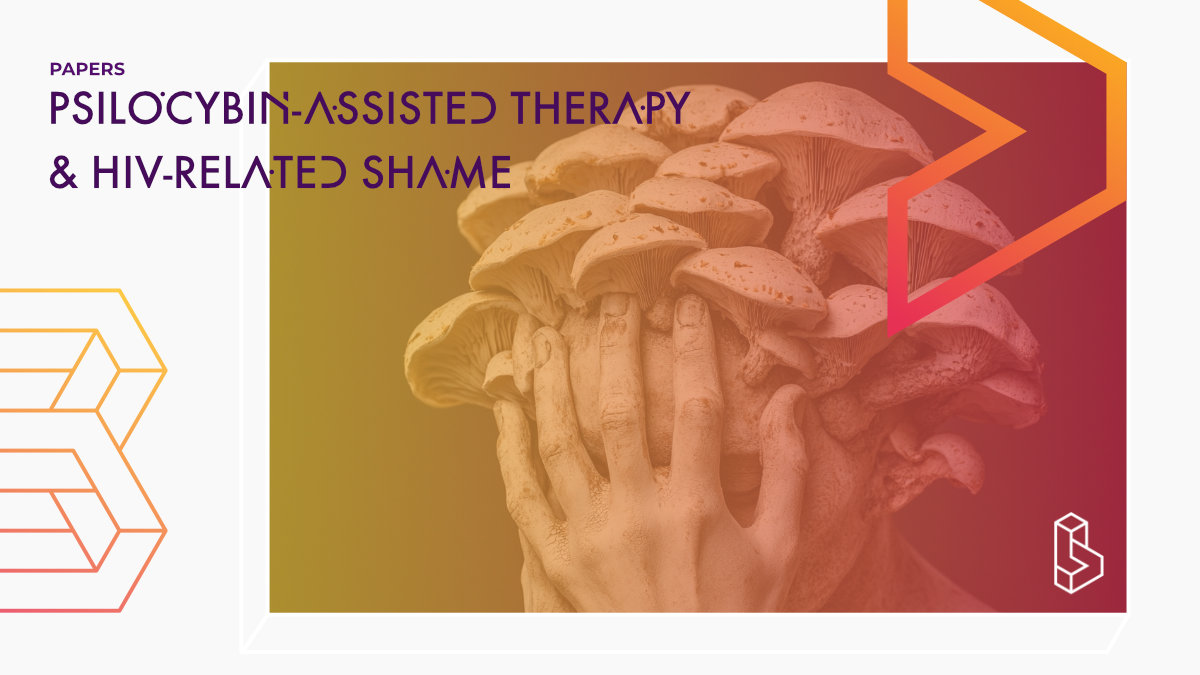This re-analysis (n=12) finds psilocybin-assisted group therapy associated with a significant decrease in HIV-related shame, with a median change of −5.5 points from baseline to 3-months follow-up. However, two participants experienced increased sexual abuse-related shame, raising important considerations for psilocybin therapy in trauma patients.
Abstract of Psilocybin-assisted therapy and HIV-related shame
“As a proposed mediator between stigma-related stressors and negative mental health outcomes, HIV-related shame has been predictive of increased rates of substance use and difficulties adhering to antiretroviral treatment among people with HIV. These downstream manifestations have ultimately impeded progress toward national goals to End the HIV Epidemic, in part due to limited success of conventional psychotherapies in addressing HIV-related shame. In a pilot clinical trial (N = 12), receipt of psilocybin-assisted group therapy was associated with a large pre-post decrease in HIV-related shame as measured by the HIV and Abuse Related Shame Inventory, with a median (IQR) change of − 5.5 (− 6.5, − 3.5) points from baseline to 3-months follow-up (Z = − 2.6, p = 0.009, r = − 0.75). A paradoxical exacerbation of sexual abuse-related shame experienced by two participants following receipt of psilocybin raises critical questions regarding the use of psilocybin therapy among patients with trauma. These preliminary findings carry potential significance for the future of HIV care.”
Authors: Nicky J. Mehtani, Mallory O. Johnson, Peter S. Hendricks, Jennifer Mitchell & Brian T. Anderson
Summary of Psilocybin-assisted therapy and HIV-related shame
People with HIV continue to experience disproportionately high rates of psychological distress and substance use disorders, which are recognized as among the greatest barriers toward ending the HIV epidemic.
Shame is an intensely painful emotion resulting from negative self-evaluation following a perceived deviation from a social or moral code. Shame is further complicated for individuals who have experienced sexual abuse or identify as sexual and gender minorities.
Shame is an internally experienced emotional response that can potentially be altered through individual-level behavioural interventions. However, effective psychotherapies are time-consuming, demand a high degree of motivation, and may pose unique challenges for individuals suffering from shame.
Find this paper
Psilocybin-assisted therapy and HIV-related shame
https://doi.org/10.1038/s41598-024-68908-4
Open Access | Google Scholar | Backup | 🕊
Cite this paper (APA)
Mehtani, N. J., Johnson, M. O., Hendricks, P. S., Mitchell, J., & Anderson, B. T. (2024). Psilocybin-assisted therapy and HIV-related shame. Scientific Reports, 14(1), 17919.
Study details
Compounds studied
Psilocybin
Topics studied
Addiction
Public Health, Prevention & Behaviour Change
PTSD
Relationships
Safety
Study characteristics
Original
Open-Label
Within-Subject
Follow-up
Participants
12
Humans
Linked Research Papers
Notable research papers that build on or are influenced by this paper
Psilocybin-assisted group therapy for demoralized older long-term AIDS survivor men: An open-label safety and feasibility pilot studyThis open-label feasibility study (n=17) showed that psilocybin-assisted group therapy (21-25mg/70kg) was safe and effective for the treatment of demoralization in older long-term AIDS survivors.

